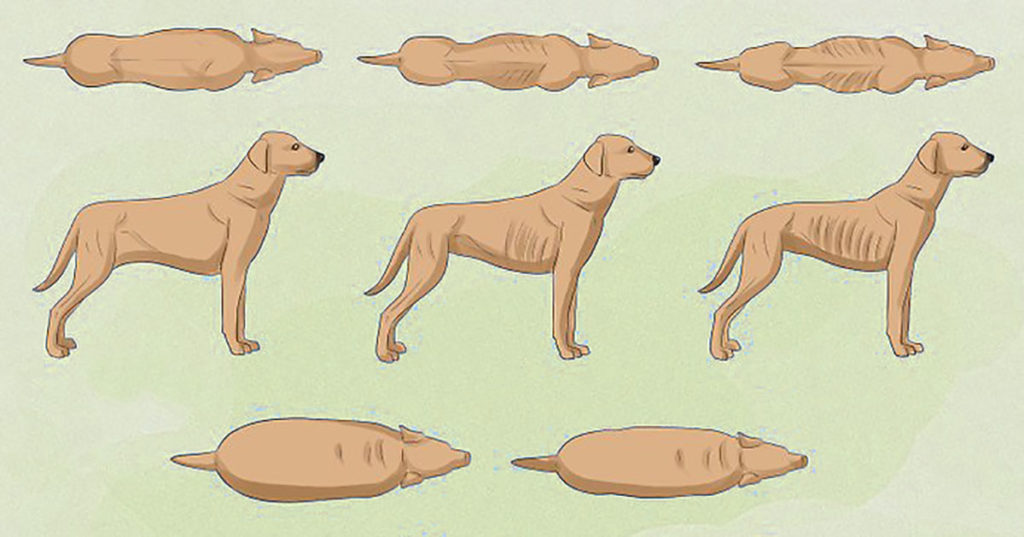In a recent study, the Association for Pet Obesity Prevention (APOP) found that 56% of dogs in the United States were overweight or obese. Being overweight or obese leads to just as many health concerns and quality of life issues in the lives of dogs as it does in that of humans.
Finding out what factors are associated with obesity in dogs can help with prevention and weight management so that our dogs can live the healthiest, happiest lives possible. Determining these correlating factors is just what a group of Danish researchers set out to do in a recent study on dog obesity.

Gathering Data
Researchers recruited 268 companion dogs that were over the age of two years old and that did not have any chronic health problems. In other words, they looked at adult, otherwise healthy dogs that were pets. The dogs were examined at veterinary clinics located in areas of varying socioeconomic status. Researchers assessed and assigned a Body Condition Score (BCS) for each dog using the 9-point BCS scoring scheme.
Additionally, each dog’s primary caretaker answered a questionnaire that included:
- dog characteristics, including neuter status
- caretaker characteristics
- feeding and exercise practices
- the caretaker’s level of attachment to the dog
The researchers correlated the effect of these factors on the dog’s BCS and the risk of being heavy/obese (BCS scores 7–9) in two separate analyses.

Human Obesity Correlated to Pet Obesity
Of the 268 dogs analyzed, 20.5% were found to be heavy or obese. In terms of dog characteristics, there were several factors found to increase the risk of a dog being heavy or obese. One such factor was neutering in male dogs. Interestingly, male dogs who are neutered were at higher risk of being heavy or obese but spayed females were not. Age was also a factor that revealed interesting findings. Male seniors were at a lower risk for obesity than senior females, who had a higher risk.
Learn more about a healthy weight for your dog!
The factor that prevailed as the biggest correlation was the obesity or overweight status of the human caretaker. Dogs were more likely to be overweight or obese if the human caregiver was overweight or obese. This was true even when other factors did not have an impact. For example, treats being fed to a dog during relaxation increased the dogs’ BCS, but only if the caretakers were overweight or obese.

Dogs who were fed only once per day had an increased BCS and risk of being heavy/obese compared to those who were fed more than once a day. Dogs who were allowed to run free in the yard or garden had a lower BCS and risk of being obese or heavy. The human’s attachment to the dog was not associated with the dogs’ BCS or dogs’ being heavy/obese confirming that canine obesity is not a product of humans being too attached to, and thus spoiling, their dogs.
This study certainly revealed some interesting correlations between canine Body Condition Score and the humans who take care of them. As with all things related to body condition, food and exercise reign supreme.
 Toledo, United States.
Toledo, United States.